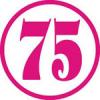
Nelli Millard knew fashion would be her career since she was a little girl in Russia, volunteering to be a dress model for her mother in her design studio. Now, after moving to America—and with 20 years in the business—she has her own prosperous studio, the Nelli Millard Fashion Sewing Studio, in Bend, Oregon.
">http://www.youtube.com/watch?v=hXHa6eDz_pk&feature=related]
In addition to doing expert-quality tailoring and alterations Nelli also creates her own fashion line of dresses (like her recent collection “From Russia With Fashion”) and participates in many shows, including those for Portland Fashion Week. Her reputation is based on the quality of her craftsmanship, stylish construction and expert design—all skills she learned from the Stavropol Technical College with a degree in Designing and Technology of Custom Clothing. She later taught at that same school.
Nelli was eager to share the lessons she learned from her 20+ years in the industry with our aspiring designer readers:
What inspired you to get into the industry?
My inspiration came from my Mom, who was great designer and excellent tailor. I always enjoyed beautiful and beautifully made clothes.
What type of education did it take to get you where you are today?
I graduatad from the Technical College of Fashion in Russia.
How has your career path progressed over the years and where do you hope it will go?
I had a chance to work during college, sewing practical classes as a teacher and later I was a manager and technologist in a fashion studio. Now I have my own studio, where I work with customers and create lines of clothes semi-annually.
What is your favorite part of working in the business?
I love my job from A to Z. From the moment I start my sketches for any garment--it's so much fun! But at the same time I am always very anxious to finish the garment and see the final result. So, the whole process of clothe designing to me is very exciting and enjoyable.
What advice would you give to aspiring fashionistas?
My advice for aspiring fashionistas are to follow your instincts. Like with any art work be inventive with materials, ideas and technology, and most importantly--be patient, because sometimes it takes time to do good work, over and over and over again.
What schools would your company be most likely recruit new hires from?
Localy I would look for the students from the Portland Fashion Institute. And also, since I look for professional tailors, I would like to see their work as finished garments--in this case I'm willing to teach them some sewing and pattern making skills.
Do you think there is an overall increasing or decreasing need for people in the fashion and style industry?
In the style industry many people want to be a fashion designers, and only designers, but there is an increasing need for professional workers such as tailors, pattern makers and so on.
What designer(s) or brand(s) influenced you the most?
My favorite designers are: Versace, Donna Karan, Valentino and Yudashkin.
Which skills do you consider to be most critical for a career in fashion?
To make a career in fashion many skills are critical: sewing, pattern making, adaption to new technology, industry knowledge of marketing and so on.
What is the hardest part for you about working in the industry?
The hardest part of this industry, I think, is letting your own ideas out to the crowd and then hoping that people will understand, like and buy them.
What perks do you receive working in the fashion industry? Free clothes? Travel? Parties?
There are so many benefits in this business - free clothes (in order to be a face of your own brand), travel for marketing purposes, also--since I'm working with customers it's always great to see them happy, which also leads to more and more repeat business locally.
What do you foresee for the future of fashion?
As the fashion repeating itself in a cycle of about 20-25 years, it's easy to see what's next. But fashion sometimes depends on the world, politic events and cultural influences. For the fashion designers it's always important to be aware of all of these aspects. As I see fasion for next year it would be more animal prints fabrics, fake fur.... and minimalization-- the least cloth as possible.
Check out more interviews at The Fashion-Schools.org Interview Series.





